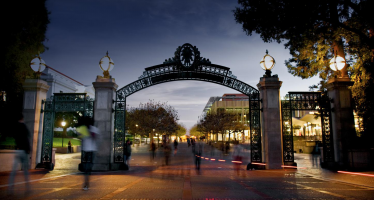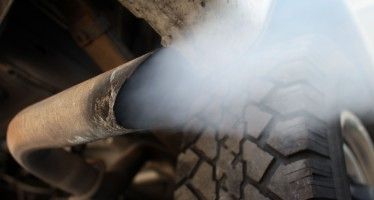State forces Uber to stop testing self-driving vehicles
 Uber’s defiance of a California Department of Motor Vehicles’ demand that the pioneering transit company stop testing its self-driving Volvo sport-utility vehicles in San Francisco ended Wednesday when the DMV revoked the vehicles’ registrations, making them illegal to operate on state roads.
Uber’s defiance of a California Department of Motor Vehicles’ demand that the pioneering transit company stop testing its self-driving Volvo sport-utility vehicles in San Francisco ended Wednesday when the DMV revoked the vehicles’ registrations, making them illegal to operate on state roads.
The DMV first ordered the Uber tests to end in a Dec. 14 letter. But Uber — which is headquartered in San Francisco — defied the letter and argued that its tests weren’t subject to rules the DMV issued in October. It said those rules were meant to govern testing of fully autonomous vehicles.
Instead, Uber said it was using vehicles with self-driving technology akin to the in-dashboard tech seen in some Tesla models, and that humans were in the vehicles. A human tester’s failure was blamed for the incident last week when an Uber test Volvo was caught on video running a red light in San Francisco.
The company based its claim that the DMV didn’t understand its own rules on language that defined an autonomous vehicle subject to state regulations which said these vehicles did not require “the active physical control or monitoring” of a person. “We can’t in good conscience” accept a bureaucratic sanction based on ignorance, a Google official told reporters in a conference call last Friday.
It’s not clear whether Uber will face further sanctions from the DMV or the state Attorney General’s Office. But the company’s history of slowness or outright refusal to comply with regulatory agencies may work against it, both in decisions made by state officials and in the court of public opinion. Also damaging was Uber officials’ quick concession after complaints from San Francisco bicycle riders that its test vehicles needed better programming in dealing with bicycle lanes that are ubiquitous in the Bay Area.
Obama administration pushed much laxer regulation
The Uber-DMV dispute underlined how different California’s approach to driverless-vehicle regulation is from the federal government. In September, the Obama administration issued recommendations — not hard rules — for regulations of self-driving vehicles. It called for there to be a uniform policy in all states to promote innovation and experimentation with a technology that many hope will reduce pollution and congestion and end up being a trillion-dollar industry.
Four weeks later, the California DMV issued rules that said autonomous vehicle testing could only be done by companies whose testing programs were designed to “constantly ensure the technologies comply with local laws [in California’s] 58 counties and 482 incorporated cities,” according to the San Jose Mercury-News. The DMV rules required that formal permission for testing be granted by any local government whose roads would be part of tests.
As CalWatchdog reported, the California approach to regulating self-driving cars produced sharp blowback from automakers and tech giants.
Uber’s problems in San Francisco have prompted sympathy and perhaps opportunism from new Sacramento Mayor Darrell Steinberg. The Associated Press reported that Steinberg invited Uber to shift its testing to Sacramento if it wanted friendlier treatment. “We want Sacramento to be the hotbed for companies seeking to develop driverless car technology,” he told the wire service.
Chris Reed
Chris Reed is a regular contributor to Cal Watchdog. Reed is an editorial writer for U-T San Diego. Before joining the U-T in July 2005, he was the opinion-page columns editor and wrote the featured weekly Unspin column for The Orange County Register. Reed was on the national board of the Association of Opinion Page Editors from 2003-2005. From 2000 to 2005, Reed made more than 100 appearances as a featured news analyst on Los Angeles-area National Public Radio affiliate KPCC-FM. From 1990 to 1998, Reed was an editor, metro columnist and film critic at the Inland Valley Daily Bulletin in Ontario. Reed has a political science degree from the University of Hawaii (Hilo campus), where he edited the student newspaper, the Vulcan News, his senior year. He is on Twitter: @chrisreed99.
Related Articles
Poll: Californians think higher ed is too expensive, love the quality
Californians are concerned over the cost of the state’s public colleges and universities, just as two of the state’s three
Life A Beach For OC's $200K Lifeguards
MAY 13, 2011 By BRIAN CALLE Some lifeguards in Orange County are making upwards of $200,000 in total compensation. This
Assembly OKs CARB accountability measure, climate agenda headed to governor
Lawmakers on Wednesday sent a measure to Gov. Jerry Brown creating legislative oversight of the California Air Resources Board — a




